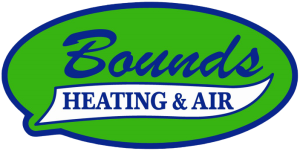With winter underway, it’s time to perform some HVAC maintenance to ensure you’ll be comfortable all winter long. Bounds Heating and Air share the things you shouldn’t miss when you inspect your HVAC system.
How Often Should You Replace Air Filters in Your Home?
Ideally, air filters should be checked at least every six months, then once a month during cooling and heating seasons. This is a critical step if your home has a split system heat pump, as the same system is basically pulling double-duty for the whole year. Make it a point to clean the air filters (or replace them, if disposable) when they’re dirty.
How to Clean Heat Registers
Just like the air filters, the grilles and registers should be clean and free from obstructions. Brush the grilles to remove dust and dirt, or wash and dry them if removable. Anything that’s blocking the registers can reduce their efficiency so make sure the vents are not blocked by furniture, carpets, or rugs.
How to Clean Furnace Heating Coils
Both condenser and heating coils should be clean, otherwise, the dirt could affect your heating system’s efficiency. Depending on the type of HVAC system, it may require professional cleaning. If this is the case, contact an HVAC repair expert like Bounds Heating and Air before winter sets in.
How to Test a Thermostat
Test the thermostat and make sure it works. You might need to perform some troubleshooting in case it’s not working. Check the contacts first and make sure they’re clean. You may need to change the batteries and reset the thermostat. When you’re feeling air but it’s not warm, try setting the thermostat a few degrees higher, wait a few minutes until you feel warm air, then set it back to your ideal temperature.
Check Other Non-HVAC Components
In addition to the heating system, check other parts of your home that could affect your HVAC system’s performance. Those include checking windows for drafts, as well as inspecting the weatherstripping on your windows and entry doors. An airtight, insulated enclosure ensures your heating system doesn’t consume more energy than it should.



